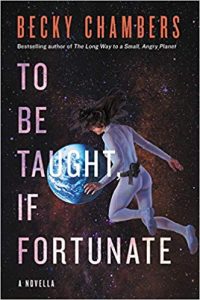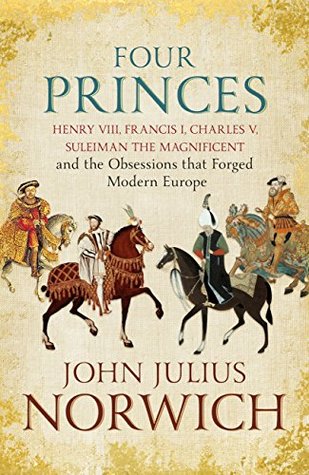 Orbital by Samantha Harvey
Orbital by Samantha Harvey Narrator: Sarah Naudi
Format: audiobook, ebook
Source: borrowed from library
Formats available: hardcover, paperback, ebook, audiobook
Genres: literary fiction, science fiction
Pages: 207
Length: 5 hours and 7 minutes
Published by Atlantic Monthly Press on December 5, 2023
Purchasing Info: Author's Website, Publisher's Website, Amazon, Barnes & Noble, Kobo, Bookshop.org, Better World Books
Goodreads
The earth, from here, is like heaven. It flows with colour. A burst of hopeful colour.
A book of wonder, Orbital is nature writing from space and an unexpected and profound love letter to life on Earth
Six astronauts rotate in their spacecraft above the earth. They are there to collect meteorological data, conduct scientific experiments and test the limits of the human body. But mostly they observe. Together they watch their silent blue planet, circling it sixteen times, spinning past continents and cycling through seasons, taking in glaciers and deserts, the peaks of mountains and the swells of oceans. Endless shows of spectacular beauty witnessed in a single day.
Yet although separated from the world they cannot escape its constant pull. News reaches them of the death of a mother, and with it comes thoughts of returning home. They look on as a typhoon gathers over an island and people they love, in awe of its magnificence and fearful of its destruction. The fragility of human life fills their conversations, their fears, their dreams. So far from earth, they have never felt more part - or protective - of it. They begin to ask, what is life without earth? What is earth without humanity?
My Review:
It begins in the morning, as all of their alarm clocks wake them for a brand new day. But all of those things are a bit, well, liminal, as day, night, and even sleep are all a bit nebulous and artificial for the six residents of the International Space Station.

The alarm clocks are real. Electronic, but still real. It’s the rest of the circumstances that are a bit adrift. Humans are tied to the 24-hour rotation of the Earth – but the ISS isn’t ON Earth. It’s rotating the planet in Low Earth orbit, 250 miles above the surface, 16 orbits per ‘day’.
So it’s artificially morning as decreed by ground control, an attempt to keep the humans aboard the ISS tethered to the planet of their origin. For the people involved, that tethering gets more than a bit unmoored as their mission goes on.
Because they experience MANY dawns every single orbit. It might not even be daylight under them or over them when they wake up – and even if it is it won’t be very soon.
But throughout the meticulous structure of their days, from observation to experimentation to being themselves part of the experiment of life in space, the planet and the life upon it is never far from their thoughts – even when it seems like it is.
This crew, astronauts Anton, Chie, Nell, and Shaun along with cosmonauts Pietro and Roman, may be the biggest part of this story but not the only part. Because they are all reflecting upon the life below them, their personal lives and the life of the planet, even as they look outward towards the future that has specifically just passed them by, literally as well as figuratively, as they and the rest of the world watch as four astronauts in a space capsule head on their outward journey back to the place where many of their own dreams of space began.
Escape Rating C+: I picked this entirely out of curiosity. Because it’s been labelled as science fiction but it won the Booker Prize, one of the big literary awards. In general, SF and Fantasy are the red-headed stepchildren of the literary world and just don’t win the big literary awards like the Booker. SF wins SF awards, and literary fiction wins the Booker.
Having finished this in audio, I’m at least clear on my answer to the conundrum. Orbital is very much in the Literary SF tradition, with the emphasis firmly on the literary in senses both good and less so.
 So if you’re looking at this as an example of SF, it’s really not. If you’re interested in literary SF there are better examples. I’m particularly thinking of Ray Nayler’s The Mountain in the Sea. If this makes you curious about SF and are looking for something that has a bit of this feeling but also has a real, honest-to-goodness PLOT, take a look at Becky Chambers’ To Be Taught, If Fortunate, which is also a love letter to Earth and the life upon it while still managing to GET somewhere as it goes.
So if you’re looking at this as an example of SF, it’s really not. If you’re interested in literary SF there are better examples. I’m particularly thinking of Ray Nayler’s The Mountain in the Sea. If this makes you curious about SF and are looking for something that has a bit of this feeling but also has a real, honest-to-goodness PLOT, take a look at Becky Chambers’ To Be Taught, If Fortunate, which is also a love letter to Earth and the life upon it while still managing to GET somewhere as it goes.
The audio narration by Sarah Naudi was utterly lovely, and does account for the plus in the grade. This is a relatively short book, and the beauty of the narration was enough to carry me through.
I liked the idea of this story, because space travel fascinates me. I loved the feeling of being in the astronauts’ and cosmonauts’ heads as they go about their work and the world revolves below them instead of underneath them. The prose is luminous and frequently rises to the poetic.
But there’s just not enough there to coalesce into an actual story. It’s more like a day in the life, and the whole point of each individual day in the life of the residents of the International Space Station is that it’s not supposed to be all that exciting. As one of them jokes, “If you’re an astronaut you’d rather not ever be news.” And he’s very much right.
In the end, I was left with the feeling that Orbital does its very best to never allow its bare scrim of a plot to get in the way of its poetry. Which made the individual observations lovely but does not a good story make. Nor does it make for good science fiction.
As always, your reading mileage may vary.

 Queen Macbeth by
Queen Macbeth by  Escape Rating A-: I picked up Queen Macbeth because this is the second retelling of the Macbeth story from Gruoch’s perspective, set in something much closer to the historical context, to be published this year. The other being
Escape Rating A-: I picked up Queen Macbeth because this is the second retelling of the Macbeth story from Gruoch’s perspective, set in something much closer to the historical context, to be published this year. The other being  I’m aware that I keep talking ‘around’ this story instead of ‘about’ this story because a) it’s not exactly new, it’s part of the literary trend of telling classic stories from a female perspective that was popularized by Madeline Miller’s Circe a few years back, and 2) the circumstances that surround this particular participant in that trend grabbed me more than the story itself. A fascination that only grew when I learned that this book is the latest in a series of
I’m aware that I keep talking ‘around’ this story instead of ‘about’ this story because a) it’s not exactly new, it’s part of the literary trend of telling classic stories from a female perspective that was popularized by Madeline Miller’s Circe a few years back, and 2) the circumstances that surround this particular participant in that trend grabbed me more than the story itself. A fascination that only grew when I learned that this book is the latest in a series of  Four Princes: Henry VIII, Francis I, Charles V, Suleiman the Magnificent and the Obsessions that Forged Modern Europe by
Four Princes: Henry VIII, Francis I, Charles V, Suleiman the Magnificent and the Obsessions that Forged Modern Europe by